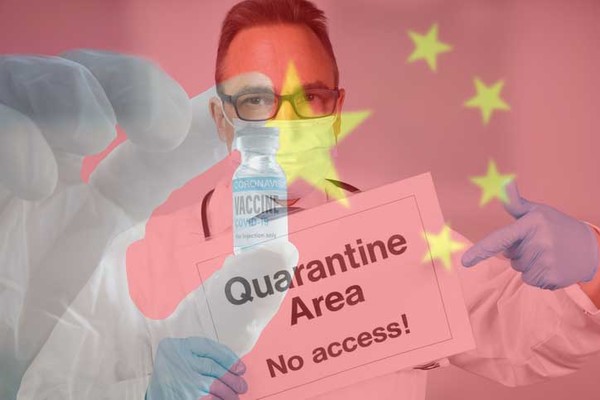Starting from July, the government will allow those who have received Covid-19 vaccinations approved by the World Health Organization (WHO) to enter the country without undergoing a two-week quarantine process.

The WHO has approved vaccines developed by Pfizer, Janssen Moderna, AstraZeneca, Covidshield, Sinopharm, and Sinovac.
However, some foreign media outlets, including The New York Times, recently reported that the number of confirmed cases of Covid-19 has been increasing recently in Mongolia, Bahrain, Seychelles, and Chile, where the people injected with the two vaccines made in China -- Sinopharm and Sinovac.
Not a few Koreans, including experts, are expressing concerns about the news.
An increasing number of people and medical professionals call for excluding those vaccinated from China from the self-quarantine exemption process. They argued that people who have received a vaccine with uncertain efficacy could become carriers of local infection if they enter the country without self-quarantine.
Some argued that the principle of reciprocity between the two countries should also be a reason to review the exemption from self-quarantine for those vaccinated from China. This is because while people vaccinated from China are exempt from self-quarantine when they enter Korea, they must go through a three-week facility quarantine when they return to China, raising an issue of unfairness.
“Why do we have to put our faith in Chinese vaccines and exempt those that received that vaccine from quarantine when even China still maintains a quarantine process?” said Jung Young-su, a 42-year-old tech-firm CEO who does business in China. “It feels as though the government is only interested in keeping a good relationship with China even if it means risking the health of its citizens.”
Jung complained that the Korean government should have won similar benefits from China in exchange for the exemption, such as a shorter quarantine and easing of visa restrictions to enter China.
“Local entrepreneurs are struggling to conduct business in China due to strict visa restrictions that ban family members from entering the country following quarantine rules,” he said.
According to The New York Times, Mongolia, Bahrain, Seychelles, and Chile have been boasting a high vaccination rate that even surpasses the U.S. The four countries have fully vaccinated 59 to 71 percent of their populations, outpacing even the U.S. in vaccination rate of 53.21 percent.
Despite having a high vaccination rate, these four countries recently have seen a surge in cases. In the past week, Seychelles and Mongolia ranked top and second regarding the number of infections per 100,000 people. Chile and Bahrain were also among the top 15 countries regarding the number of infections per 100,000 people.
However, in response to the increase in cases in the four countries, China argued that it could not find a link between the surge in Covid-19 cases in these countries and the Chinese vaccine. Rather, the country praised itself for contributing to humanity by supplying vaccines in large quantities to other countries.
Koreans’ responses to the Chinese claims were skeptical at best, however.
The fact that Sinopharm and Sinovac are not disclosing detailed clinical data despite claiming that their vaccines have a preventive effect or 78.1 and 51 percent, respectively, is not helping to erase Koreans’ doubt about the vaccine.
“Although there were related research data on the vaccines published in China, they were very late in unveiling such data through reliable international papers such as Pfizer, Moderna, and AstraZeneca,” an infectious disease expert said to Korea Biomedical Review, asking to remain anonymous due to the sensitivity of the issue. “In fact, Sinopharm and Sinovac announced the clinical trial results to the WHO half a year late and refused to disclose detailed data.”
The development process itself is unclear, he added.
The public health authorities maintained their position on exempting self-quarantine those that received Chinese vaccines stating that it is not desirable in terms of policy credibility.
“It is not desirable in terms of policy credibility to immediately exclude those that received China’s vaccine just because there is a problem,” said Yoon Tae-ho, head of the overall quarantine squad at the Central Disasters Management Headquarters. “A decision must be made based on objective grounds and a rigorous evaluation of the situation in major countries.”
An increase in confirmed Covid-19 cases is happening in countries that received either one of the Chinese vaccines and other nations that have received other vaccines, he added.
Yoon stressed that the government needs to evaluate the recent global trend as a whole.

